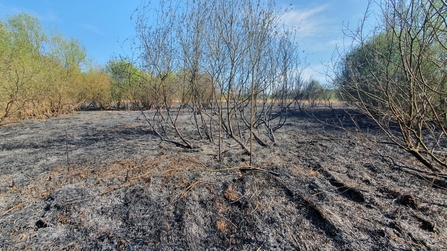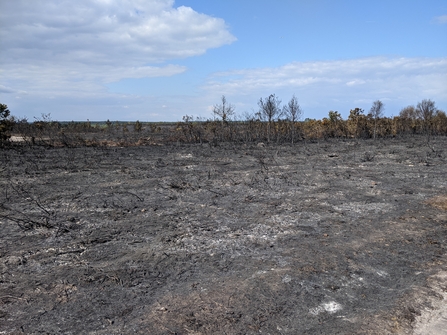Following a series of wildfires in the last ten days which have killed wild animals and destroyed large swathes of key nature reserves, The Wildlife Trusts are issuing a warning ahead of this weekend’s bank holiday.
A prolonged spell without rain means many heathlands, moorlands and grasslands are ‘tinder dry’, catching fire from the tiniest hot ember or spark. Recent wildfires in Surrey, Yorkshire, Lancashire, Dorset and Teeside have left land scorched and nature without a home.
The Wildlife Trusts are asking visitors to the countryside to:
- Pack a picnic, not a BBQ
- Only light BBQs or campfires in authorised locations where there are fire extinguishers available
- Extinguish cigarettes or matches and never throw them onto the ground
- Take litter home because discarded bottles and cans can cause fires
- If you spot smoke, or flames, make sure you’re safe and dial 999 immediately


